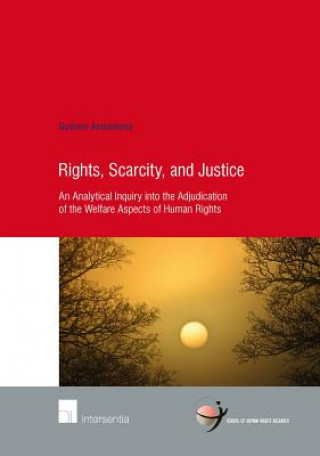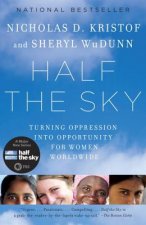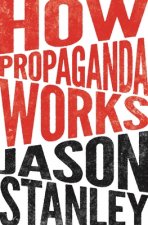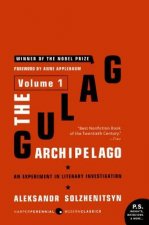
Kód: 09089479
Rights, Scarcity, and Justice
Autor Gustavo Arosemena Solorzano
Can human rights really protect people from want? If one is lacking medical care or housing, can one really go to a judge and ask for the provision of such goods and services? These questions have proved divisive for academics, po ... celý popis
- Jazyk:
 Angličtina
Angličtina - Vazba: Brožovaná
- Počet stran: 226
Nakladatelství: Intersentia Ltd, 2014
- Více informací o knize

2711 Kč
Dostupnost:
50 % šance Máme informaci, že by titul mohl být dostupný. Na základě vaší objednávky se ho pokusíme do 6 týdnů zajistit.
Máme informaci, že by titul mohl být dostupný. Na základě vaší objednávky se ho pokusíme do 6 týdnů zajistit.Prohledáme celý svět
Mohlo by se vám také líbit
-

Rivalry for Trade in Tea and Textiles
3970 Kč -

unglaublicher Glaube
679 Kč -

Hopfenmusigzeit, 1 Audio-CD
487 Kč -

Der Violinbegleiter
644 Kč
Dárkový poukaz: Radost zaručena
- Darujte poukaz v libovolné hodnotě a my se postaráme o zbytek.
- Poukaz se vztahuje na celou naši nabídku.
- Elektronický poukaz vytisknete z e-mailu a můžete ihned darovat.
- Platnost poukazu je 12 měsíců od data vystavení.
Informovat o naskladnění knihy
Zadejte do formuláře e-mailovou adresu a jakmile knihu naskladníme, zašleme vám o tom zprávu. Pohlídáme vše za vás.
Více informací o knize Rights, Scarcity, and Justice
Nákupem získáte 271 bodů
 Anotace knihy
Anotace knihy
Can human rights really protect people from want? If one is lacking medical care or housing, can one really go to a judge and ask for the provision of such goods and services? These questions have proved divisive for academics, politicians and judges working in the field of human rights. Some consider that there is no real difference between civil and political rights and economic, social and cultural rights. Others think that economic, social and cultural rights have structural features that make their judicial protection unwelcome. This book aims to move this debate forward. It starts by recognizing that while there is no abyss between civil and political rights and economic, social and cultural rights, some perceptible differences between different duties arising out of human rights remain. In particular, duties aiming to provide for basic needs which are significantly costly give rise to problems that deserve special attention. They are structurally disposed to give rise to dilemmas. Under human rights, everybody is entitled to certain goods and services in times of dire need, but in a context of scarcity, there are not enough resources to provide these goods and services to everybody. Under what rule or principle would it be reasonable for judges to intervene in these sorts of situations? What would be the best approach to these problems? How can a judge intervene in these problems while maintaining his commitment to the rights of everyone? The book studies the possibilities of judicial engagement with matters of welfare in situations of scarcity. First, it isolates the real problems that such forms of judicial engagement entail. Afterwards, it presents three distinct strategies for protecting welfare duties judicially: reasonableness, prioritization and deliberative democratic dialogue. Reasonableness is based on the practice of reasonableness review present in the Constitutional Court of South Africa. By contrast, prioritization and deliberative democratic dialogue constitute more novel alternatives to reasonableness that are loosely inspired in various developments in comparative constitutional law. Finally, it discusses the relative merits and demerits of these strategies in an analytical framework based on qualitative comparative analysis.
 Parametry knihy
Parametry knihy
Zařazení knihy Knihy v angličtině Society & social sciences Politics & government Political control & freedoms
2711 Kč
- Plný název: Rights, Scarcity, and Justice
- Podnázev: An Analytical Inquiry into the Adjudication of the Welfare Aspects of Human Rights
- Autor: Gustavo Arosemena Solorzano
- Jazyk:
 Angličtina
Angličtina - Vazba: Brožovaná
- Počet stran: 226
- EAN: 9781780682754
- ISBN: 1780682751
- ID: 09089479
- Nakladatelství: Intersentia Ltd
- Hmotnost: 388 g
- Rozměry: 240 × 172 × 14 mm
- Datum vydání: 18. October 2014
Oblíbené z jiného soudku
-

The Gulag Archipelago
410 Kč -

On Palestine
361 Kč -

Propaganda
410 Kč -

Gift of Love
276 Kč -

In Order To Live
302 Kč -

Manufacturing Consent
356 Kč -

Understanding Power
472 Kč -

Anatomy of the State
322 Kč -

Long Walk To Freedom
433 Kč -

Half the Sky
389 Kč -

On Liberty
276 Kč -

Red Horizons
431 Kč -

How Propaganda Works
524 Kč -

Creating Capabilities
624 Kč -

I Have a Dream
394 Kč -

Fear No Evil
498 Kč -

In Harm's Way
1704 Kč -

Handbook of Tyranny
848 Kč -

Zinnophobia
1003 Kč -

Nothing To Envy
268 Kč -

The Gulag Archipelago, 1918-1956
467 Kč -

The Gulag Archipelago, 1918-1956
485 Kč -

Human Rights: A Very Short Introduction
249 Kč -

Inventing Human Rights
396 Kč -

New Jim Crow
302 Kč -

Political Philosophy: A Very Short Introduction
268 Kč -

Cultural Cold War
498 Kč -

Commissar Vanishes
716 Kč -

Rights of Man
196 Kč -

Anatomy of the State
198 Kč -

Constructing Cassandra
1040 Kč -

Gulag Archipelago
463 Kč -

International Law: A Very Short Introduction
268 Kč -

Anarcho-Fascism
462 Kč -

The Net Delusion
302 Kč -

Orwell on Truth
433 Kč -

Uncreative Writing
546 Kč -

Soul of America
616 Kč -

Parkland: Birth of a Movement
463 Kč -

Satow's Diplomatic Practice
2592 Kč -

Universal Human Rights in Theory and Practice
923 Kč -

Legitimacy of International Human Rights Regimes
1088 Kč -

Art of Revolt
528 Kč -

Domination and the Arts of Resistance
549 Kč -

Desert and the Sea
302 Kč -

Witness for the Defense
548 Kč -

Sociology of Human Rights
810 Kč -

Terrorism, Rights and the Rule of Law
1575 Kč -

Suffragettes
89 Kč
Osobní odběr Praha, Brno a 12903 dalších
Copyright ©2008-24 nejlevnejsi-knihy.cz Všechna práva vyhrazenaSoukromíCookies


 Vrácení do měsíce
Vrácení do měsíce 571 999 099 (8-15.30h)
571 999 099 (8-15.30h)